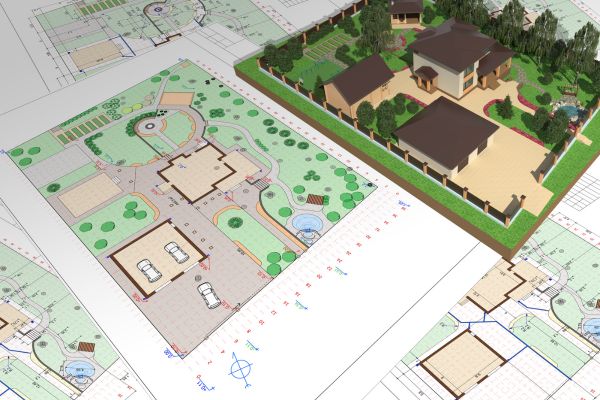Summary of Cases of Land Allocation and Land Lease Requiring Bidding According to the Land Law 2024
Summary of Cases of Land Allocation, Land Lease through Bidding under the Land Law 2024
The issue of land allocation and land lease through bidding is stipulated in Article 126 of the Land Law 2024.
Accordingly:
Cases where the state allocates land with land levy, leases land through bidding to select investors for land-use investment projects include:
Case 1
Projects where land is recovered for investment in the construction of urban areas with mixed-use functions, synchronized technical infrastructure, social infrastructure with housing following construction law for new construction or urban renovation; rural residential projects; where the provincial People's Council decides to allocate land, lease land through bidding to select investors to implement land-use investment projects.
The provincial People's Council sets criteria for deciding to conduct bidding to select investors for land-use investment projects suitable to the local reality;
Case 2
Land-use investment projects where the state recovers land for economic - social development in the national, public interest and not falling under case (1) but must organize bidding to select investors under sectoral and field management law.

Summary of Cases of Land Allocation, Land Lease through Bidding under the Land Law 2024 (Image from the Internet)
Conditions for Bidding to Select Investors for Land-Use Investment Projects
The conditions for bidding to select investors are stipulated in Article 126 of the Land Law 2024 as follows:
For projects under case 1
Conditions for bidding to select investors for land-use investment projects under case 1 include:
- Belonging to the list of land areas for bidding on land-use investment projects decided by the provincial People's Council;
- Having detailed planning or 1/2000 zoning planning approved by the competent authority;
- Conditions according to the law on bidding.
For projects under case 2
Land-use investment projects under case 2 must meet the following conditions:
- Belonging to the list of land areas for bidding on land-use investment projects decided by the provincial People's Council;
- Having detailed planning or 1/2000 zoning planning approved by the competent authority;
- Conditions according to the law on bidding.
- Other conditions by sectoral and field management law.
Additionally, within 36 months from the date of issuance of the decision recognizing the bidding results or another period as per the signed contract with the competent state agency, the competent-level People's Committee must complete compensation, support, resettlement to allocate land, lease land.
Organizations allocated land, leased land as stipulated in Clause 6 and Point d Clause 7 of Article 126 of the Land Law 2024 are responsible for advancing funds for compensation, support, resettlement as required by the competent state agency based on the approved compensation, support, resettlement plan; if failing to advance adequate funds for compensation, support, resettlement within 06 months from receiving the request, the competent state agency will decide to cancel the bidding results.
Classification of Land under the Land Law 2024
According to Article 9 of the Land Law 2024, based on the purpose of use, land is classified into agricultural land, non-agricultural land, unutilized land. Specifically:
The agricultural land group includes:
- Land for annual crops, including rice cultivation land and land for other annual crops;
- Land for perennial crops;
- Forestry land, including special-use forest land, protective forest land, production forest land;
- Aquaculture land;
- Livestock production land;
- Salt-making land;
- Other agricultural land.
The non-agricultural land group includes:
- Residential land, including homestead land in rural areas, homestead land in urban areas;
- Land for building offices;
- Land used for national defense and security purposes (hereinafter called defense and security land);
- Land for construction of non-business facilities, including land for cultural, social, health, education and training, physical education and sports, science and technology, environment, meteorology and hydrology, foreign affairs, and other non-business facilities or building headquarters of other public service providers;
- Non-agricultural production and business land, including industrial park land, industrial cluster land; commercial land; non-agricultural production establishment land; land for mineral activities;
- Land for public purposes, including land for transportation works; water works; water supply and drainage works; disaster prevention works; land with historical - cultural relics, scenic spots, natural heritage; waste treatment works; energy, public lighting works; postal, telecommunications, information technology infrastructure works; rural and wholesale markets; land for public entertainment, community activities;
- Land used for religious activities (hereinafter referred to as religious land); land used for belief activities (hereinafter referred to as belief land);
- Cemetery land, funeral homes, cremation facilities; land for ash storage facilities;
- Specialized water surface land;
- Other non-agricultural land.
Unutilized land group is land not yet determined for use and not yet allocated, not yet leased.
When will the Land Law 2024 come into effect?
According to Article 252 of the Land Law 2024, the Land Law 2024 will take effect from January 01, 2025. However, Articles 190 and 248 of the Land Law 2024 will be effective from April 01, 2024.
LawNet